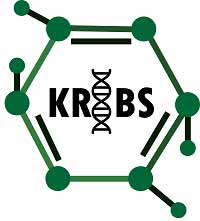Background
During the COVID19 pandemic, we realized the lack of a state-of-the-art research laboratory facility that would allow us to work on Biosafety Level 1/2 pathogen and associated human clinical samples. To address this infrastructure gap, we, Research Institute for Bioscience and Biotechnology (RIBB) and Kathmandu Research Institute for Biological Sciences (KRIBS), came together to co-establish a laboratory facility that stands on the global biological safety level 2 qualification. Currently, we are working together to study different infectious diseases in this facility, and we are also training young scientists so as to sustain the research culture we create. We named it “Biomedicum campus”, where researchers and students from both institutes come together to share ideas and learn the science together.

Biomedicum campus inaguration ceremony

Signase of MoU between RIBB-KRIBS-PRI

Biomedicum Campus Building
BSL-2 Laboratory Capacity Building
As a collective effort to sustain biomedical research at KRIBS, we have established a laboratory facility that allows us to work on human infection and immunology. As a result of this laboratory capacity strengthening, we have been able to work on human isolated peripheral blood mononuclear cells (PBMC) with an aim to understand the dynamics of antigenic stimulation on cultured PBMCs. Alongside the in-vitro stimulation assay, we have also validated the long-term storage and revival of these primary human isolated PBMCs, which has allowed us to ask relevant immunological questions in a longitudinal fashion. In the near future, we are aiming to establish a central flow cytometry facility, which will allow us to execute research to understand the cellular heterogeneity and the dynamics of the immune response against different infectious diseases.


Human blood separated Plasma, PBMC, and RBC (top to bottom)

Hermetically sealed bucket centrifuge to handle infectious specimens

Liquid Nitrogen Dewar for long term cell cryopreservation

BSL-2 Laboratory Supervisor

Daisy Awale
Research Associate
Email: awale.d@kribs.org.np
Ongoing Research Studies
- Dengue Virus Seroprevalence and Genetic Diversity: Investigation of Recent Dengue Outbreaks in Nepal
The results of this study will increase their understanding of how genetic changes in DENV may have influenced the serotype distribution, seroprevalence, and key clinical features during the 2019 and 2022 outbreaks in Nepal. This pilot study may also help to guide health authorities in developing targeted mitigation strategies against DENV, bolstering the local healthcare infrastructure, and creating a vital biobank for continued DENV research.
Principal Investigators:
Aunji Pradhan (Central Department of Biotechnology, Tribhuvan University)
Anurag Adhikari (Department of Infection and Immunology, Kathmandu Research Institute for Biological Sciences)
2. Characterization of anti-HIV antibodies for their role in immune effector (neutralizing and Fc mediated) functions
This study aims to characterize the anti-HIV antibodies isolated from HIV patients, to understand the immune-activating functions through the antibody’s Fab/Fc domain. We utilize the monocytes and natural killer cells to assay for antibody-dependent cellular phagocytosis (ADCP), antibody-dependent cellular cytotoxicity (ADCC), and antibody-dependent neutralization (ADN) at the BSL2 laboratory. This study is funded through European Research Council and human ethics approval has been granted from Nepal Health Research Council.
Principal Investigator: Anurag Adhikari (Department of Infection and Immunology, Kathmandu Research Institute for Biological Sciences)

More details are in KaVA-Program [see https://kribs.org.np/kava-program/ ]
